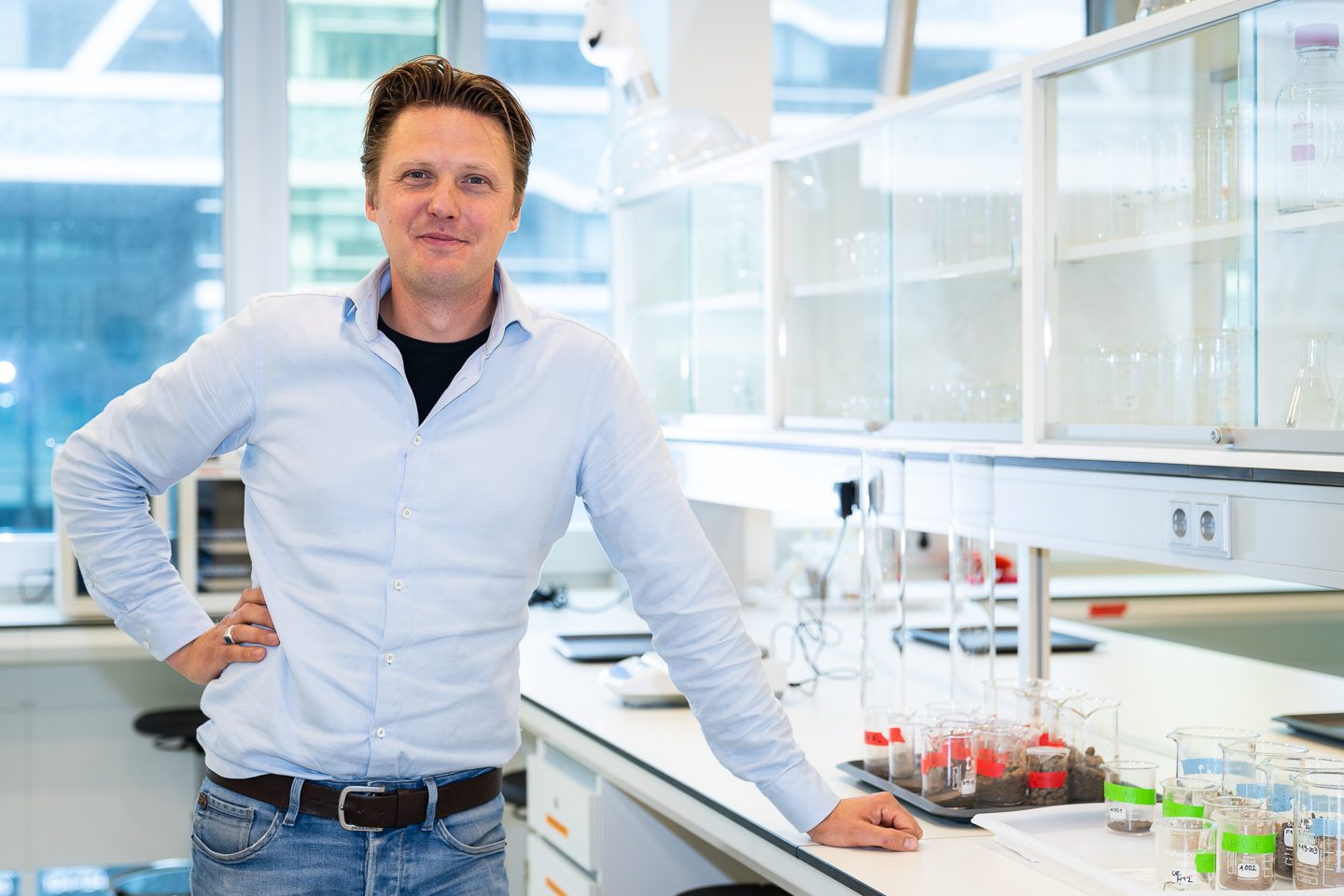
Major European research into microplastics in agricultural soils: grant for Thijs Bosker
Thijs Bosker, Associate Professor of Environmental Sciences at Leiden University College (LUC) and the Institute of Environmental Sciences (CML), has received funding as part of a large consortium to study the impacts of microplastics on agricultural soils. The project will receive 7 million euro of funding from the EU, and is led by NIVA, the Norwegian RIVM. Bosker will receive 350,000 euros to conduct research at Leiden University
He heard the news at the end of 2020: 'It was a great end of a very weird year', he says, laughing. Below is a short introduction about the project called PAPILLONS (Plastic in Agricultural Production: Impacts, Lifecycles and LONg-term Sustainability) in five questions and answers.
'Microplastics are everywhere. In our oceans, rivers, in the air we breath, but little is known about microplastics in soils, even though this is where we grow most of our food.
What is the project about?
What is the main objective of this extensive research?
'The focus in this project is on agricultural soils. With the team, we are trying to gain more insight into what happens with microplastics in soils, and whether this can have harmful effects on the soil, but also on agricultural production. Since most of our food is grown in soils it is key we ensure our soils stay healthy.'
-

Dr. Ir. Thijs Bosker in the lab of LUC The Hague -

Microplastics that stick to a seed
What does your part of the research involve?
‘The research is divided into several work packages. In Leiden we are mainly looking at the impact of microplastics on plants. For example, we will determine whether microplastics impact plant growth, or whether seeds can still germinate or roots develop normally. We also look at whether there is any physiological damage: Do they still produce chlorophyll? Do we see enzymes or proteins being produced which indicate that plants are stressed? We will start our project in the lab with eight crops. We then look at the consequences of a limited number of crops in a mini-ecosystem, called a mesocosm.'
How will the research take place?
‘It will be done in three phases, first we will study impacts in the lab. Next we move to a more environmentally relevant scenario by making mini-ecosystems. Here we look at the interaction between soil, soil organisms and plants, but still under controlled conditions. Finally, in the third step we will participate in fieldwork.’
What does it do to you personally that you can work on this?
‘It is a great opportunity to work with a large group of experts from all over Europe on such a big issue. I'm looking forward to it!
Leiden University College The Hague offers a broad, flexible and interdisciplinary residential Liberal Arts and Sciences programme with a focus on Global Challenges. In this bachelor programme students specialize in relevant fields like world politics, economics, governance, international justice, human & cultural interaction, global public health and environmental sciences.
Written by Margriet van der Zee. Photography by Edinburgh Greens (header).
